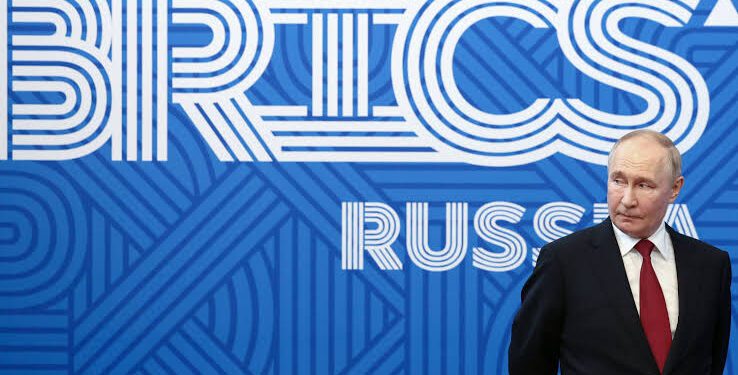In a significant development aimed at challenging the dominance of the United States in artificial intelligence (AI), Russian President Vladimir Putin announced on Wednesday the formation of a global AI Alliance Network. This collaboration will involve BRICS nations—Brazil, Russia, India, China, and South Africa—and other interested countries, positioning Russia as a key player in the 21st-century AI race.
The AI Alliance Network: A Collaborative Framework
Speaking at Russia’s flagship AI conference in Moscow, Putin outlined plans for the AI Alliance Network, which will include national associations and development institutions from BRICS and beyond. Among the new entrants are Serbia, Indonesia, and other non-BRICS countries, broadening the coalition’s scope.
“Russia must participate on equal terms in the global race to create strong artificial intelligence,” Putin emphasized. He noted that Russian scientists are working on cutting-edge solutions, and the initiative is open to global scientific collaboration.
Overcoming Technological Barriers
Western sanctions imposed in response to Russia’s ongoing war in Ukraine have restricted its access to vital technologies, including microchips essential for AI development. Major global microchip producers have halted exports to Russia, creating significant hurdles.
Sberbank, Russia’s leading lender and AI development spearhead, has faced challenges in acquiring advanced graphics processing units (GPUs)—a cornerstone of AI innovation. Despite these limitations, the AI Alliance Network offers a pathway to advance joint research, facilitate technology regulation, and create market opportunities for AI products across member nations.
BRICS Collaboration: A Strategic Counterbalance
The United States and China are widely recognized as global AI leaders, with the U.S. government making substantial investments to maintain its technological edge. Recently, U.S. President-elect Donald Trump appointed a “White House AI and Crypto Czar” to solidify America’s position in the sector.
However, Russia’s alignment with China under the BRICS umbrella introduces a potential shift in the global AI landscape. China’s rapid advancements in AI technology and its active collaboration with Russia could bolster the bloc’s capabilities and competitiveness.
Expanding Russia’s Global AI Influence
In addition to BRICS countries, several other nations, including Serbia and Indonesia, have joined the alliance, further diversifying its composition. This broader coalition enables Russia to expand its AI footprint and work toward becoming a significant player in global AI innovation.
According to Yakov and Partners, a consultancy led by former McKinsey employees in Moscow, Russia is one of 10 nations developing generative AI models, a key factor in its ambition to achieve technological parity with the U.S. and China.
Future Prospects
The AI Alliance Network’s success will depend on overcoming resource constraints and fostering collaboration among diverse member states. By inviting global scientists to join its efforts, Russia seeks to position itself as a vital hub for AI research and development.
While the Western sanctions present ongoing challenges, Putin’s strategic move to ally with BRICS and other nations underscores his determination to secure Russia’s place in the global AI race. This initiative, if successful, could reshape the competitive dynamics of AI development on the world stage.
Related Stories:
BRICS Moving Away From the De-Dollarization Agenda
Russia to Host Landmark BRICS Summit in Ongoing Bid to Reshape World Order
BRICS: Russia and Iran terminate SWIFT and Initiates Transfer in Local Currency
















